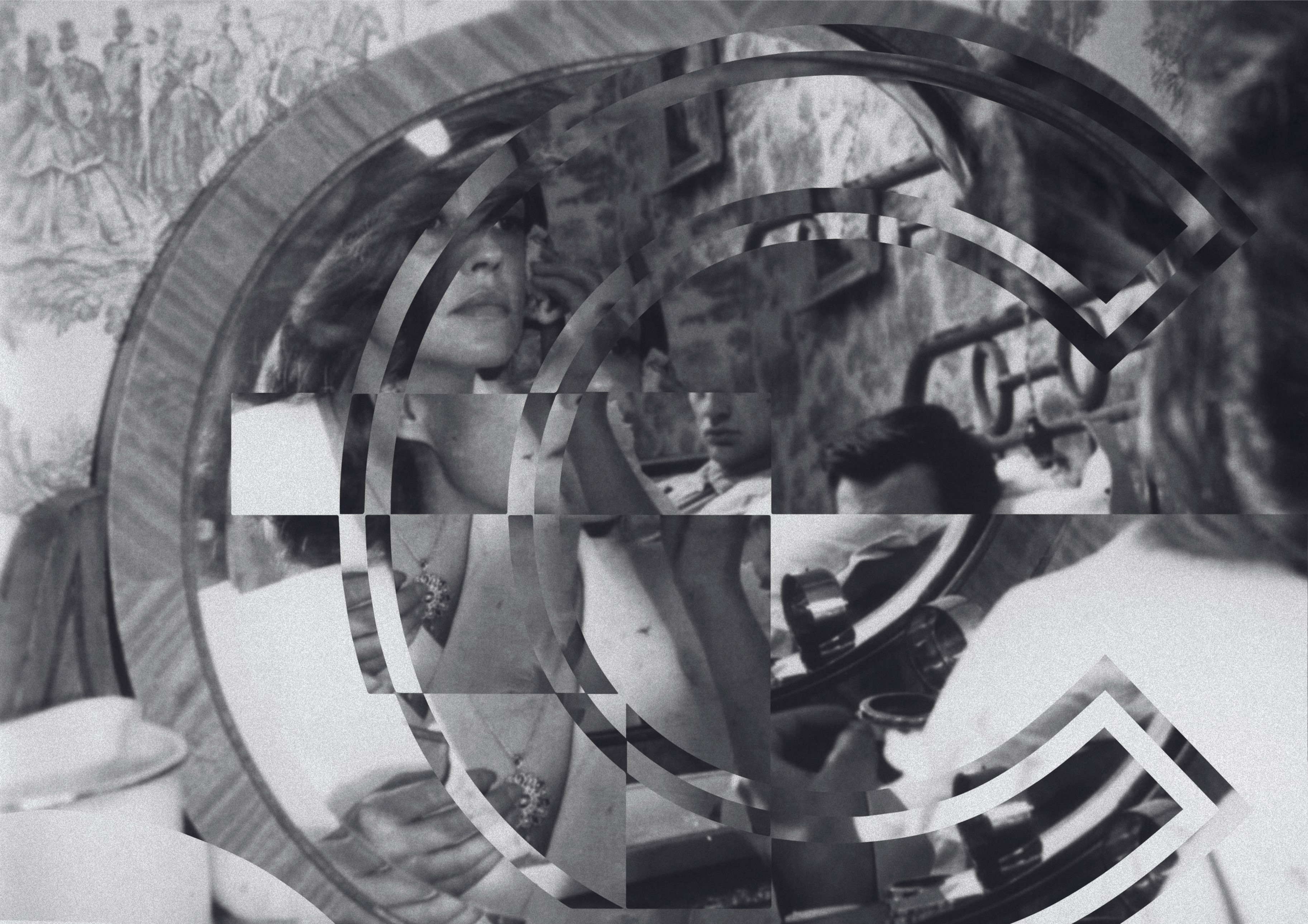
On Shared Love, Outsourced Desire, and Loving Without a Map
In this Open Column submission, Abby C. Junction responded to our past content on polyamory, and reflects in full, personal entirety on the course of love and human relationships on the cusp of ethical non-monogamy, all while also finding one’s own self (and language) in being human.
Words by Whiteboard Journal
When my husband fell in love with her, it wasn’t the first time he’d been with someone else. But it was the first time he loved someone else.
By then, non-monogamy wasn’t new to us. We had systems: shared calendars, post-midnight debriefs, threesomes with clean exits. This wasn’t a free-for-all — it was a negotiation in
progress. Beneath it all, a vow: we will keep being us.
So when she arrived, it wasn’t betrayal. It wasn’t even a surprise. But the air shifted.
What changed wasn’t the arrangement — it was the atmosphere. This was no longer theory. No longer play. She was someone who texted him first thing in the morning. Who knew his laugh when he wasn’t performing. She saw parts of him I’d only met in passing. Not because he kept them from me — but because proximity rearranges truth. And gravity favors the newest orbit.
The irony? It was the same month I realized I was done waiting.
Outside of shared encounters, I’d been untouched for years. Not angry. Not even lonely. Just… hollow.
So I downloaded Bumble. Not to retaliate. Not to keep score. Just to remember what it felt like to be wanted. Or maybe — to reach.
We talked, of course. With the same honesty we’d always used. Sometimes gently, sometimes shakily. The conversations grew longer, heavier, quieter. We weren’t falling apart — we were reframing.
But there were no local support groups. No language in Bahasa Indonesia that felt precise. Polygamy? Sure — sermonized and serialized. But not this. Not the consensual, quiet kind. Not
the kind where no one’s a villain, and everyone’s still aching.
In our soap operas, women are left, replaced, forgiven — but rarely allowed a second orbit.
Maybe Ayat-Ayat Cinta counts. But even that was polygamy.
There’s no premarital class that prepares you for this. No KUA counseling that asks what happens when love expands. Just the quiet pressure to protect the sanctity of marriage — which in practice, means symmetry. And anything else? Zina.
Among friends, you scan the room before you speak. You post to Instagram Close Friends. You stay quiet at brunch. Coming out as non-monogamous felt more like coming out as queer. Conditional. Careful. Something to manage.
Even in “progressive” circles, the judgment mutates: Why stay if it’s not equal? Why agree to be ‘the primary’, as if it’s a prize?
But here, where even cohabiting can be criminalized — sometimes hierarchy isn’t power. Sometimes it’s protection.
Sometimes it’s the only way the story gets told.
In therapy, I stayed quiet. Even with a therapist I liked. It was easier to talk about work, anxiety, parents — than risk becoming a case study in moral decline.
In Indonesia, finding a therapist who gets ENM (ethical non-monogamy) is like dating itself: Possible. Rare. Often confusing. Best case: they don’t understand, but smile kindly. Middle case: they recommend marital counseling — quietly hoping for a return to monogamy. Worst case? They pray for your soul.
So I turned inward. Esther Perel, Jessica Fern, Emily Nagoski. r/nonmonogamy, r/polyamory, r/deadbedrooms. Sometimes I underlined passages just to feel in control. Sometimes I journaled pages I never reread.
I wasn’t looking for love. I was mapping patterns.
The men who adored me briefly. The ones who ghosted politely. The ones who held my foot like it was a relic.
Moments that gleamed. Moments that fed me. Moments that didn’t need a future to feel real.
Eventually, I began building a taste index — not of men, but of presence. I learned how admiration curdles when given too easily. How desire thins when overexplained. I learned that being known doesn’t always feel good. Being longed for gave me something else: safe distance. Curated mystery. A silhouette unruined by proximity.
But that only gets you so far.
So I returned to the body. Muscles aching in pigeon pose. Skin pulled tight on hoops. A mirror reflecting strength where once there was only gaze.
I learned not just to be seen — but to stay. With myself. To stop waiting for doors to open. To walk through them alone.
I drank cocktails solo in unfamiliar bars. I chased thrill without needing a witness. I moved through the world like it was mine to live in — not just inhabit.
Meanwhile, home stayed home. Even when it became their rendezvous. Laughter in the living room while I got dressed in the bedroom for my own nights. Everything coexisting.
He still sent me dumb reels. We still made each other coffee with the wrong beans-to-water ratio. We still spoke in code no one else understood. He still knew when I was spiraling before I did.
Our marriage is still alive. Just growing in directions we didn’t anticipate.
Still, I grieved.
I grieved the myth that I could be everything to someone. If I tried hard enough. If I stayed interesting, even in silence. If I was pliable.
But love isn’t a meritocracy. It isn’t a zero-sum game. It’s gravity — sometimes shifting. Sometimes redistributing. Sometimes leaving you with the smaller moon.
I met her, the woman he loved, over drinks. I expected collapse. Jealousy. Pain. Instead, I found a mirror.
She was thoughtful. Attentive. Not trying to win. We spoke as women, not warnings. Named our ache. There was no script — just recognition. A soft alliance, in a culture that never taught us how to share.
It didn’t make everything easier. But it made it human.
Sometimes I feel guilty for not letting him promise her paperwork. Not because I didn’t want to share — but because I know my parents wouldn’t survive the scandal. Because dimadu still means humiliation, no matter the consent. Because even love needs to be palatable to survive here.
I still don’t call myself poly. I don’t feel the need — or capacity — to love more than one person romantically. But I crave connection. I crave story. I want to be witnessed.
And in a culture that punishes women for wanting, even this feels like a confession.
No, this marriage isn’t symmetrical.
But it isn’t broken.
To most Indonesians, what we have is perversion.
To western progressives, it’s outdated. Hierarchical, problematic.
But we didn’t choose this to be legible.
We chose it because it works.
It’s not a model.
Not clean.
Not exportable.
But it’s ours. Built on clarity, ache, improvisation, loyalty, distance, choice.
If there’s a lesson, it’s not one I can teach.
No moral. No neat conclusion.
Not perfect.
Not resolved.
But real.
And sometimes, the attempt
is the most faithful thing.












